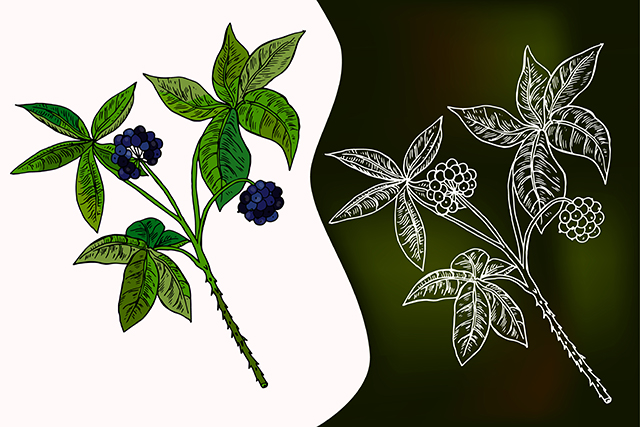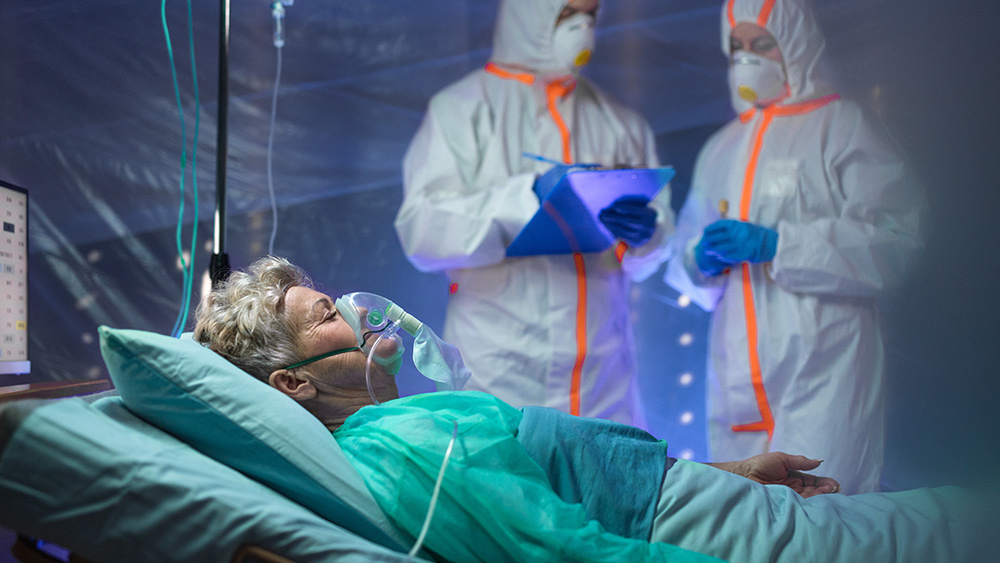Rapid mutations cause doubts about long-term coronavirus immunity
07/10/2020 / By Franz Walker

A joint study by two top epidemic research institutes in China warns that the Wuhan coronavirus (COVID-19) has gone through rapid mutations since January, and these genetic changes may allow it to spread for much longer than expected.
In a paper posted in the pre-print server bioRxiv, researchers at Guangzhou Medical University and Fudan University stated that the coronavirus has acquired six major mutations that have enhanced its ability to infect cells and escape detection by the immune system.
Interestingly, the researchers claim that most of these mutations occurred in Europe and America.
The coronavirus is mutating quickly
To infect human cells, SARS-CoV-2 – the virus behind COVID-19 – uses a component called the spike protein. This protein binds to angiotensin-converting enzyme 2 (ACE2), a receptor found on the surfaces of cells located in the lungs, arteries, heart, kidneys and intestines.
Of the six mutations they reported, the researchers identified three genetic changes that improved the spike protein’s ability to bind to ACE2. For instance, variation in the gene called N439K resulted in an additional chemical bond between the spike protein and the ACE2 molecule. (Related: Claim: Coronavirus has mutated to become more contagious.)
The three other mutations, on the other hand, affected how the virus interacts with the immune system. The researchers said that one of them even destroys the bond between the coronavirus and the antibody that’s supposed to neutralize it.
The researchers noted that these mutations were, in a way, similar to the ones observed in the influenza virus and the human immunodeficiency virus (HIV). These viral pathogens are known to dodge immune attacks through rapid mutation.
“This means that even if [an] effective vaccine could be developed for [the currently] circulating SARS-CoV-2, the rapid, immune escape trend mutations will cause the [the vaccine to become ineffective] in a short time,” the authors wrote in their report.
In addition to identifying genetic mutations, the researchers also pinpointed the locations where they likely took place. At present, the two major hotbeds for mutation, according to them, are the United States and the United Kingdom. The researchers said thousands of genetic changes that affect the virus’s infectivity and immune escape mechanism happened in these countries.
Another factor that they believe may have driven these mutations is the human immune response. Studies show that the average adult catches a “cold” from other coronaviruses every two years. The immune system may have learned from these infections and placed selective pressure on certain genes, which caused the Wuhan coronavirus to evolve.
Long-term immunity against COVID-19 in doubt
The new findings cast doubt on previous assumptions about the length of the pandemic and the possibility of developing immunity from the virus. Prior to the study, scientists at the Harvard T.H. Chan School of Public Health estimated that the pandemic would end next year if long-lasting immunity against the virus could be established.
However, if the virus continues to mutate, any acquired immunity will be short-lived and the possibility of another outbreak next year is extremely high.
The study also throws a wrench into the plans by various countries and pharmaceutical companies trying to develop a long-term vaccine against the virus.
On Tuesday, Dr. Anthony Fauci, head of the National Institute of Allergy and Infectious Diseases, said that the U.S. would know whether a vaccine would work by the end of the year or the beginning of next year. That said, Fauci, widely considered America’s foremost expert on the coronavirus, conceded that the immunity granted by a vaccine would likely be “finite.”
“We may need a boost to continue the protection, but right now we don’t know how long it lasts,” he added.
If that is to be the case, then dealing with COVID-19 may end up being like dealing with the flu, where new vaccines need to be developed every year in a seemingly never-ending struggle against the disease.
For the latest news about the coronavirus, visit Pandemic.news.
Sources include:
Tagged Under: ACE2, angiotensin-converting enzyme 2, China, coronavirus, covid-19, Flu, genetic mutation, immune system, immunity, infections, infectious disease, outbreak, pandemic, research, SARS-CoV-2, spike protein, superbugs, vaccine, viral infections, virus infectivity
RECENT NEWS & ARTICLES
ImmuneSystem.News is a fact-based public education website published by Immune System News Features, LLC.
All content copyright © 2018 by Immune System News Features, LLC.
Contact Us with Tips or Corrections
All trademarks, registered trademarks and servicemarks mentioned on this site are the property of their respective owners.



















